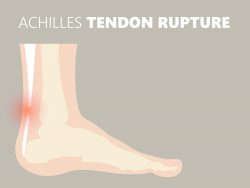 Tendons are the structures that connect our muscles to our bones. They are important to every movement a person does. When they become injured, it can be quite difficult to repair them. The existing therapies often are fret with complications. In a quest to remedy this, researchers have now constructed artificial tendons. They are biologically and mechanically similar to normal tendons and use human pluripotent stem cells.
Tendons are the structures that connect our muscles to our bones. They are important to every movement a person does. When they become injured, it can be quite difficult to repair them. The existing therapies often are fret with complications. In a quest to remedy this, researchers have now constructed artificial tendons. They are biologically and mechanically similar to normal tendons and use human pluripotent stem cells.
In this study, a team from Tokyo Medical and Dental University successfully induced human stem cells to make artificial tendon like tissue. This new tissue copies tendon properties and offers a greatly improved reconstruction from a mouse tendon-rupture model.
The use of human pluripotent cells is important because they can be accumulated from any adult cell and then differentiated into any specialized cell-type. These cells are used with Mohawk, which is a relay factor promoting gene expression in tendon formation, to produce the artificial tendon tissue.
The team then tested the artificial tendon using a mouse model of a ruptured tendon. They were excited by the results. After 6 weeks from the implantation there were similar mechanical tendencies that are normal compared to an undamaged mouse tendon. This confirmed that it had been integrated well. They also found that the new tissue had the ability to find and use tendon cells from the host further activating the repair process.
The results show that human pluripotent stem cell-derived bio-tendons have biological and mechanical properties comparable to normal tendons. They can be entirely integrated rather quickly after transplanting them in a mouse model. The next move is to test them in larger animal models and determine if they have the capacity to be biomaterial on a larger scope.
To view the original scientific study click below:
Generation of a tendon-like tissue from human iPS cells





